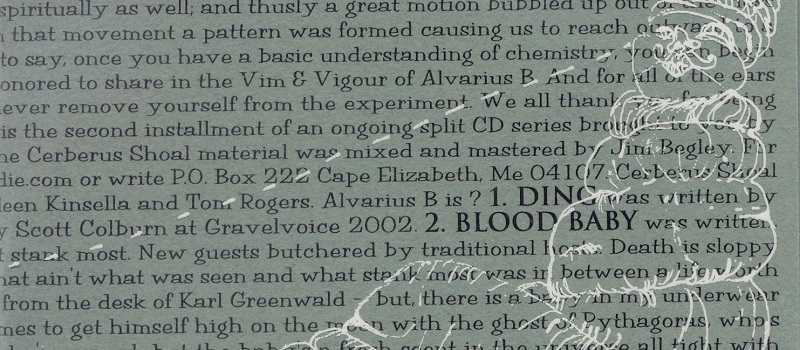There’s something deceptively airy about a Pan American record. Mark Nelson of Labradford, under whom the project has long operated, creates highly textured, atmospheric, and low-pulse guitar soundscapes that seem to float like a still pond’s reflection of the starry night sky. To quote no less than Brian Eno: “like Duane Eddy playing Erik Satie”. Damn, I wish I had thought of that.
On The Patience Fader, Nelson’s ninth full-length LP for the Pan-American moniker, the suggestion of greater gravity percolating below the surface of things still exists. But it’s a faint suggestion, like faded handwriting. The songs are wonderfully layered (as always, a real trip on headphones) where guitar notes flood and flicker deep into the titular horizon. Occasionally, you see the hallmarks of more conventional portraiture – a patch of washed sound or recording ephemera resembling a frame or a border, say – but, more often than not, Nelson seems content to take you through his tides with few hints at where you’re going. And, as ever, the result is almost extra-terrestrial in the specifics of its musical language and, yes, mesmerizing.
The 12-song record begins in medias res, with the listener, after a brief bit of static, dropped into an already tide-washed wall of guitars, led by a weepy lead (“Swimming in a Western Hotel”). Here, as on much of the last Pan-American LP, 2019’s A Son, Nelson works wonders with pedal steel but his take on the instrument is decidedly more icy and abstract than much of the more conventional Americana or Western volk canon. On the song that follows it, he finds one of the record’s zeniths, a fuzzy bit of obtuse guitar playing, and glassy-eyed leads titled, appropriately, “Outskirts, Dreamlit”. It’s been suggested that Nelson eschews a blues scale, avoiding reprisals and repetition for the journey of a composition that travels, that covers more land. There’s some truth to that, though the truncated and repetitive up-and-down/E then A chords that toy with listeners as the foundation of “Outskirts, Dreamlit” are just as magical as the accurately dream-laden lead guitar, all trademark Pan-American.
The rest of the record mesmerizes in much the same vein as A Son did three years ago. “The North Line” has a hint of twang by way of Bill Frisell, with great little hammers-on of strings that suggest the bending of time. “Harmony Conversion”, simply too short at 3:08, features beautiful little high notes and harmonic pings in the mix that lend, again, a sense of literal airiness to the proceedings. There are short-handed signatures buried in the narrative of “Harmony” that, if fleshed out, could break your heart. Nelson tosses them out to stand on their own merits without afterthought, a bravura move. Occasionally, Nelson drops his icy façade for a moment of home-spun warmth and “sincerity”, whatever that means; for this, look no further than the wondrous acoustics of “Nightwater”, which lacks some of the sonic depth of other compositions herein but, as a work of solos, has surprising bite.
There are lesser moments, yes. “Baitshop”, a 28-second clip of someone opening the door of, we’re guessing here, a baitshop, is interesting but unnecessary. Much the same could be said for “Wooster, Ohio”, a kind of high-pitched faux-drone that never really discovers its legs.
The record closes with some astonishing attention to detail. Only Nelson could top a song like the requiem-esque “Almost Grown”, the record’s 11th track, to close out an LP– and he does just that with “Grounded”. A highly muted offering (both literally and figuratively), Nelson here paints with the occasional wail of a lone horn above an ocean of white noise (higher in the mix here than elsewhere) and the occasional flicker of glassy guitars. Instead of going big for the curtains, he pays attention to the small details, and the listener is justly rewarded.
Yes, Nelson continues to master Pan American’s melancholy, lost highway brand of sound on The Patience Fader and longtime listeners won’t be taken aback by surprises but, instead, courted and played out by the familiar. A man of consistency, Nelson continues walking his path, a path strewn with sad guitars. And we’re all the better for it. — Justin Vellucci, PopMatters, March 1, 2022
-30-




